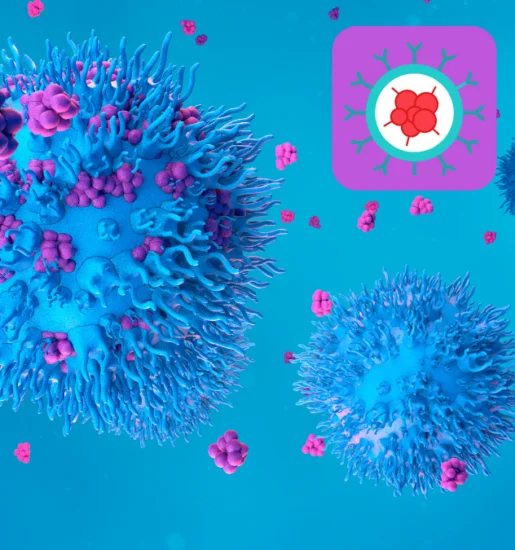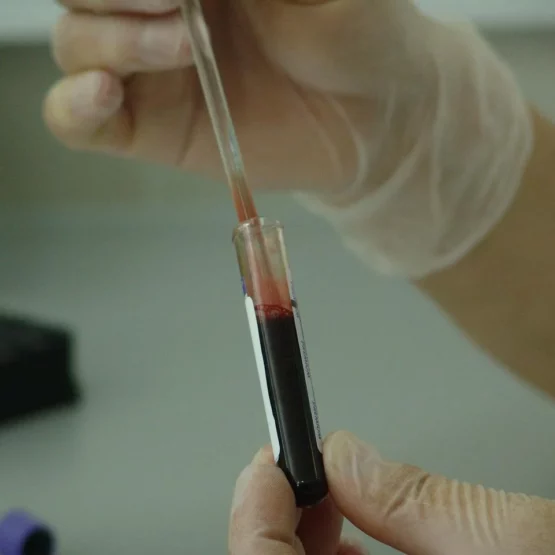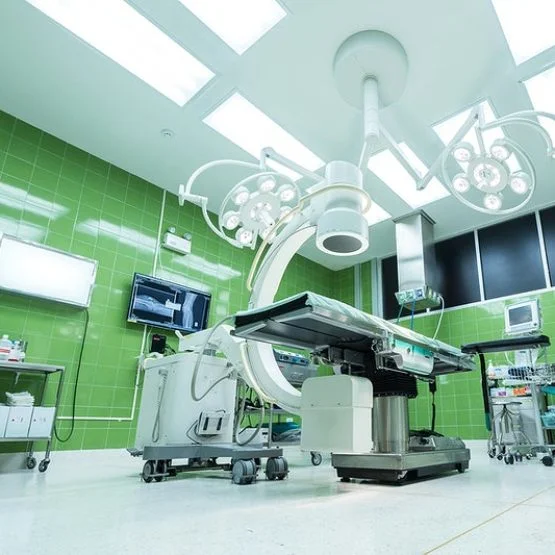India has made significant strides in the field of blood cancer treatment, showcasing remarkable advancements.
Leading hospitals in the country are equipped with dedicated teams of oncologists, hematologists, and bone marrow transplant specialists, ensuring round-the-clock care. Leveraging cutting-edge technology, India has witnessed a notable increase in the remission rate of symptoms, alongside improvements in patient survival rates.
Recent Scientific Advancement in India
Alka Dwivedi, a graduate student at IIT Bombay, was inspired to explore the possibility of developing CAR T-cell therapy in India due to the high cost and potential side effects associated with existing treatments being tested in the US.
Alongside colleagues Rahul Purwar and Gaurav Narula, she sought to create a therapy tailored to the needs of Indian patients. Through collaboration with experts at the NIH Clinical Center, they gained valuable insights into CAR T-cell therapy.
This led to the development of NexCAR19, India’s first approved CAR-T cell therapy, which was authorized by the Central Drugs Standard Control Organization in October 2023. Clinical trials conducted in India showed promising results, with a significant reduction in cancer extent observed in a majority of patients.
Two small trials were conducted in India involving 64 people with advanced lymphoma or leukemia. The results, presented in December 2023, showed that 67% of patients experienced a significant reduction in their cancer, with about half of them having their cancer disappear completely.

Treatment will depend on the type of Blood Cancer, age, how fast the cancer is developing, and whether the cancer has spread to other parts of your body. Blood cancer treatment in India has massively improved over the last few decades, several types of blood cancers are now highly treatable.
Blood cancer treatment in India includes the following:
An Anticancer drug that is introduced to the body via injection into the vein or sometimes taken as a pill to kill and halt the production of cancer cells. This treatment is often carried out for several months. It can be done on an outpatient or inpatient basis depending upon diagnosis of blood cancer. Doctors use chemotherapy to treat cancer and also relieve the symptoms such as shrinking tumors that can cause pain.
Depending on the stage and type of blood cancer, chemotherapy is either given through mouth or injection. Usually, the chemotherapy is given in cycles with a treatment period followed by rest that allows the body to recover and build strength. For blood cancer treatment in India, doctors often use chemotherapy along with radiation therapy.
There are some side effects of chemotherapy depending upon the type of treatment including fatigue, nausea, and hair loss.
This type of treatment involves high-energy radiation to kill cancer cells. They may be given chemotherapy at times. They are given through injections or tablets into the vein. This treatment takes several days or months and blood cancer cells keep dying even after the therapy ends. The session will take 30 mins to 1 hour every five days a week for 7-20 weeks usually, the patient needs a 2-3 day break after 5 days to help restore the healthy cells.
Two types of radiation therapy include:
External Radiation Therapy:
This therapy uses a machine to send streams of energy into the blood cancer cells through the skin. Before the process, the patient has to undergo a simulation that measures the angle at which radiation has to be done.
Only specific areas with cancer are open to radiation while the remaining parts of the body like ovaries and testes are under the shield. Hence there are fewer chances of skin reactions in patients.
Internal Radiation Therapy:
In this therapy, the source of radiation is inside the body and it can be a liquid or a solid. During this therapy, the patient’s blood count needs close supervision since he/she might need a blood transfusion. The treatment involves damaging the DNA in cancer cells.
There are some side effects of radiation therapy like Fatigue, skin problems, decrease in blood cell count, hair loss, dizziness, variation in blood pressure, and heartbeat. The most affected areas during the treatment include the heart, kidneys, chest, head, neck, and central nervous system.
This form of treatment involves drugs that kill malignant blood cells, without harming normal cells. A potential target for this therapy would be protein present in the cancer cells. It can involve different things like blocking the cancer cells from growing and dividing, preventing the cells from living longer, or destroying the cancer cells themselves.
There are several types of target therapy available but the most common ones are monoclonal antibodies and small-molecule drugs.
Monoclonal Antibodies:
They block specific targets outside cancer cells that might be an area around cancer.
Small-Molecule Drugs:
These drugs block the process that helps cancer cells to multiply. Angiogenesis inhibitors are an example of this type of therapy that makes new blood vessels. A tumor needs blood vessels to bring its nutrients and angiogenesis starves the tumor by preventing new blood vessels from forming tissue around it.
In this treatment, healthy bone marrow is infused into your body to produce healthy blood followed by therapy to destroy malignant blood cells. This bone marrow is very rich in stem cells which help in growing in all types of blood cells including red blood cells, white blood cells, and platelets. BMT is a permanent cure and the best blood cancer treatment in India.
There are three types of bone marrow transplants for blood cancer:
1. Autologous Transplantation
It is a stage when stem cells are collected from a patient prior to chemotherapy treatment and re-introduced into the patient’s body after treatment. The high doses of chemotherapy kill the cancerous cells in the blood.
2. Allogeneic Transplantation
It is a stage when a patient receives stem cells from a related or unrelated donor.
Depending on the relation of the donor and the matching of tissue, Allogenic BMT is further classified into 3 types. They are;
a) Complete Matched Sibling Donor BMT: In this, the donor is most likely to be a brother or sister of the patient. These are often a complete match to the patient’s tissue.
b) Haplo-Identical BMT: It is a type of Allogenic BMT in which parents are usually a donor to the patient since they are a half match for their children. In cases, where a complete match is not found and the patients do not have any siblings, the expert surgeon considers the parents to be a donor and perform Haplo-identical BMT.
c) Unrelated Donor BMT: In cases, where there is no sibling and the parents are also not a match for the patient, then Un-related Donor BMT is the solution, in which a donor who is unrelated to you is made available for the transplant from the Donor Match Registry.
3. Umbilical Cord Blood Transplant
This is a type of allogeneic transplant. Right after birth, stem cells are extracted from a newborn baby’s umbilical cord. The stem cells are frozen and kept until a transplant is required. Because umbilical cord blood cells are so immature, perfect matching isn’t required. Blood counts take much longer to recover due to the lower number of stem cells.
Because most of the blood stem cells live in bone marrow, bone marrow transplants are also known as stem cell transplants in some countries. It involves harvesting bone marrow from a donor through a needle while the donor is under anesthesia.
This treatment activates the immune system to kill cancer cells. It can work directly with your body’s immune system to slow the growth of cancer cells or destroy the cancer cells. Immunotherapy treatment is carried out one or a few times a week for several weeks. In most cases, you will receive a shot of immunotherapy into a vein over the course of a few hours.
There are a few side effects of having immunotherapy depending upon the agent used and also differ from person to person.
These treatments often can cause rashes or swelling at the injection area and may cause headaches, muscle aches, fever, and weakness.
Different types of Immunotherapy include:
Cytokines:
These are proteins made by white blood cells to regulate the immune response and help to slow the growth of cancer cells. There are two types of cytokines – interferon and interleukin.
Gene Therapy:
In this approach, genetic materials are inserted into the cells to fight blood cancer using a viral vector.
Immunomodulators:
These are the substances that affect the eBay cells interacting with each other to divide and grow.
Monoclonal Antibodies:
These are lab-produced antibodies that bind to cancer cells and allow the immune system to kill the cancer cells in the blood and bone marrow.
Blood cancer treatment explained by renowned consultant hematologist, hemato – oncologist & Bone Marrow Transplant – Dr Puneet Jain
Benefits of Blood Cancer Treatment in India
Here’s why coming to India for blood cancer treatment is a better idea:
Treatment and surgery costs in India are nearly half compared to developed nations, making it more accessible for patients seeking quality care without financial strain.
At the same time, some of the best countries for blood cancer treatment like the US, Germany, and Japan are super expensive.
The cost of blood cancer treatment in India starts from as low as 500 USD for evaluation and may vary depending on the stage, treatment protocol, and other factors, ensuring affordability and transparency in healthcare services.
The median expense for Blood Cancer Treatment in India stands at 10,94,000 INR (13,1210 USD), while the highest fee can reach up to 22,00,000 INR (26,387 USD).
The cost analysis of blood cancer treatment across various countries underscores India’s remarkable cost-effectiveness in this regard.
In the United States, the average cost per patient spans from nearly 89,000 USD for chronic leukemia to exceeding 460,000 USD for acute leukemia, showcasing substantially high expenses. Similarly, in Germany, the costs are significant, with chemotherapy ranging from €10,000 (11,000 USD) to €50,000 (54,000 USD) per year, radiation therapy from €20,000 (21,500 USD) to €50,000 (54,000 USD) per year, and stem cell transplantation from €50,000 (54,000 USD) to €200,000 (216000 USD).
Even in Japan, the first CAR-T therapy approved, priced at approximately 33 million yen (equivalent to around 300,000 USD), indicates considerable expenses. In India, the cost is between 30,000 USD and 40,000 USD.
On the other hand, India offers a much more cost-effective option for blood cancer treatment. With overall costs ranging from INR 3.8 lakh (4500 USD) to INR 22 lakh (26000 USD), Indian healthcare provides significantly lower expenses compared to other countries, making it a highly attractive destination for patients seeking quality treatment at a fraction of the cost.
India offers top-notch healthcare services with well-trained doctors and specialized operative and post-operative care teams capable of handling complex cases.
The hospitals here follow a Multidisciplinary approach. Patients can consult various oncologists including medical, surgical, and radiation oncologists, ensuring a comprehensive treatment plan tailored to their needs.
Additionally, hospitals in India provide facilities for bone marrow transplantation, which is the only permanent cure for blood cancer, ensuring comprehensive treatment options.
Moreover, in many hospitals, the ‘Tumor Board’ approach is followed. The ‘Tumor Board’ approach involves a group of highly qualified cancer experts who evaluate each case comprehensively and recommend the best treatment approach, resulting in better outcomes.
India has witnessed a significant increase in blood cancer survival rates over the past decade, with rates ranging from 60-90% depending on factors such as stage of cancer, age, comorbidities, and chosen treatment protocol.

When it comes to diagnosing and treating blood cancer, your doctor will most likely use a multidisciplinary approach.
The type of blood cancer you have, your age, how quickly the cancer is progressing, and whether the cancer has spread to other parts of your body will all influence your treatment.
The following are some of the most common treatments that your doctor may combine two or more treatments depending upon your condition: Chemotherapy, radiation therapy, targeted therapies, bone marrow transplantation, surgery, and immunotherapy are some of the options for treating cancer.
Blood cancer treatment is an expensive process. To fight cancer, patients will need a lot of time and money.
The most effective cancer treatment is found in the USA, India, Singapore, and the UK. However, not everyone can afford the treatment in developed countries.
The cost of treatment and surgery is nearly half when compared with the developed nations. Many international citizens have been enticed to seek treatment in India because of the availability of world-class treatment at a reasonable cost.
India’s healthcare system includes well-trained doctors and specialized, well-trained operative and post-operative care teams capable of handling complex cases at a reasonable cost.
So, if you’re looking for the best combination of results and affordability, India is the best option.


While choosing a hospital in India, you should keep these factors in mind:
- Choose a hospital in India that offers world-class healthcare services and has the capability for bone marrow transplantation, as it is the only permanent cure for blood cancer.
- Ensure the hospital provides access to various oncologists such as medical, surgical, and radiation oncologists, along with a well-trained paramedical staff to address the complexities of battling cancer.
- Consider the success rate and survival rates of both the oncologist team and the hospital itself to gauge their effectiveness in treating blood cancer.
- Opt for hospitals affiliated with the MedicoExperts Panel, which has been curated based on the aforementioned criteria, ensuring quality care and comprehensive treatment options for patients.


Frequently Asked Questions (FAQs):
Q1. Is blood cancer curable in India
A. Yes, blood cancer is curable in India.
Q2. How is cancer treated?
A. Cancer can be treated through surgery, drugs, and radiation. Treatment usually requires more than one type of treatment like surgery with radiation or drugs.
Q3. What are the factors on which blood cancer treatment cost in India varies?
A. The cost depends upon multiple factors including stage, treatment, protocol, age, and associated comorbidities. For example, the cost of a Bone marrow transplant is way higher than chemotherapy cycles.
Moreover, your selection of hospital and treating doctor is also one of the major differentiators of the cost.
Q4. What happens if you have blood cancer?
A. Cancer cells can swell your lymph nodes, tonsils, liver, and spleen as they accumulate. You might notice lumps in your neck or armpits, or you might feel full after a small meal. You might be able to lose a lot of weight without even trying. Bone pain can be caused by cancer cells growing in your bone marrow.
Next in Blood Cancer

Author Bio:
Dr. Yashashree Joshi – MBBS, MD (Philippines)
Dr. Yashashree Joshi, MD, is a globally-trained oncologist with a robust academic background and extensive experience in pioneering cancer treatments. Dedicated to patient-centered care, she continually integrates the latest advancements in oncology to provide her patients with innovative and personalized treatment plans.
Content Medically Reviewed By MedicoExperts Editorial & Clinically Review Board



